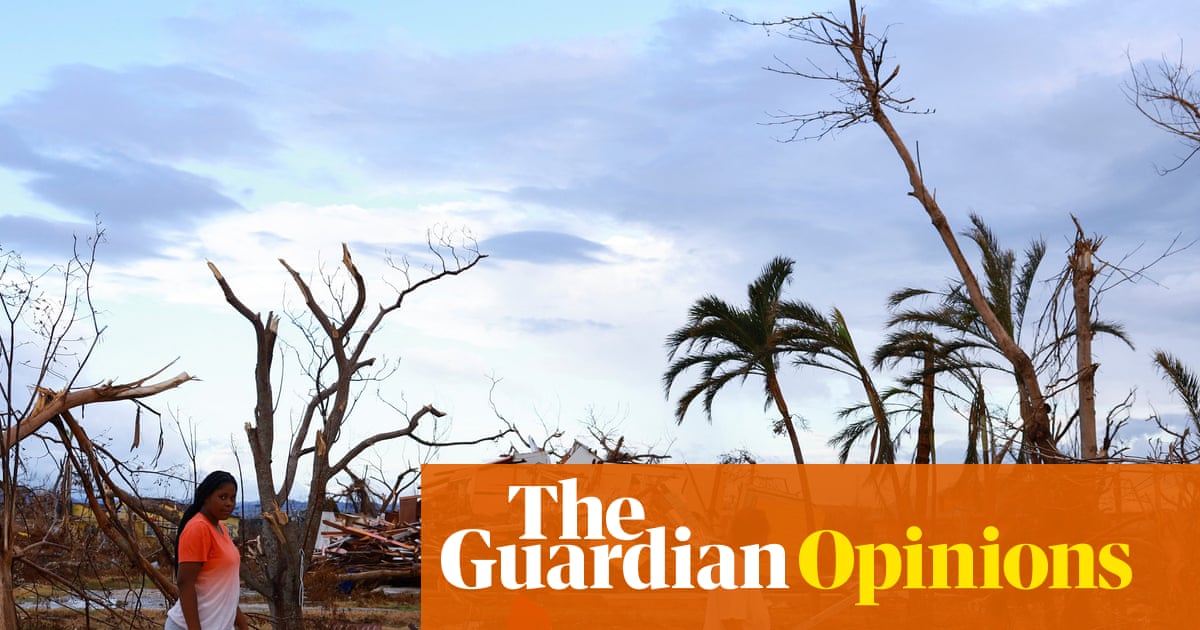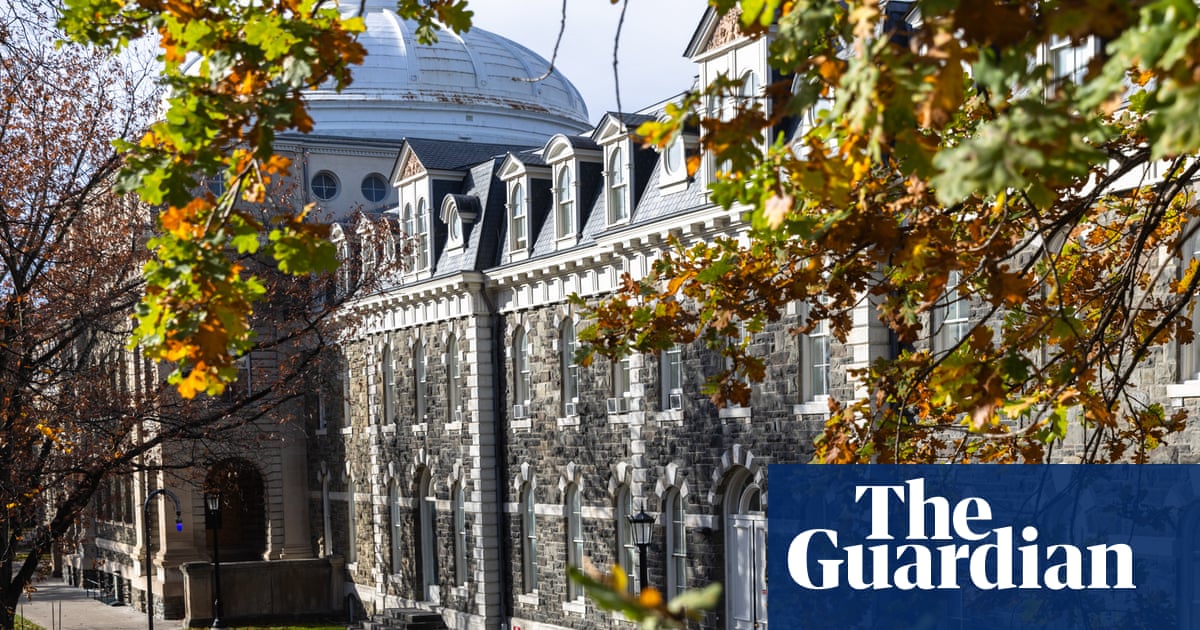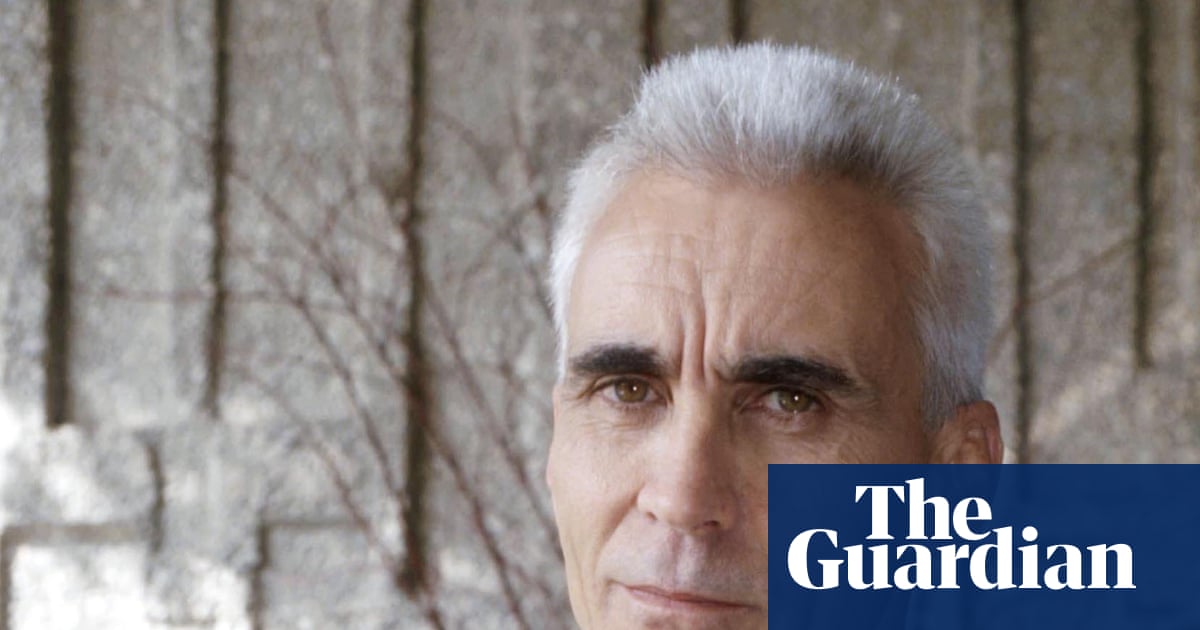When Mina Nedi graduated with a nursing degree last year, his friends and family expected him to start working in one of Egypt’s overstretched hospitals. Instead, the 25-year-old decided to join his father’s recycling business in Manshiyet Nasr, a neighbourhood on Cairo’s eastern outskirts known as Garbage City.
Every day, he sorts through thousands of plastic bottles, collected by a team of men who roam the city at night to pick up rubbish, separating them by colour and compressing them into large bundles with the help of a machine, ready to be sold for recycling and reuse.
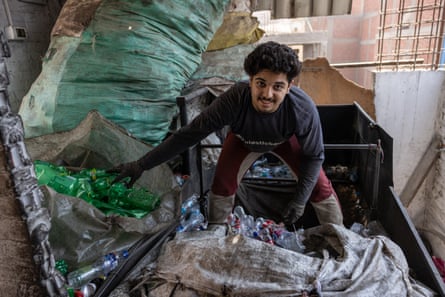
-
Mina Nedi, 25, has been working as a plastic collector for five years and funded his university education with it
What motivated Nedi was not family pressure, but a genuine determination to help the environment.
“Climate change, plastic pollution, microplastics. Awareness is growing among young people in Egypt,” he says. “Cairo has a waste problem, and I know I can make a difference here.
“To me, it’s not garbage, it’s income,” says Nedi, “and an opportunity to keep my city clean.”
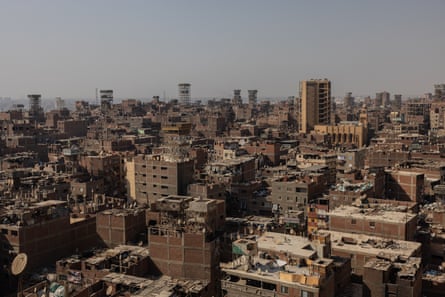
-
Manshiyet Nasr, home to about 200,000 people, is known as Cairo’s ‘Garbage City’
Manshiyet Nasr is home to about 200,000 people, many of whom migrated from southern Egypt as early as the 1940s. As Cairo has been growing – it is now home to about 23 million people – so has Manshiyet Nasr. Today the community, often referred to as zabaleen, meaning “garbage people”, handles up to 80% of the city’s waste, as well as up to two-thirds of rubbish in the greater Cairo area.
Nedi recalls that when a priest in the predominantly Coptic Christian neighbourhood died a few years ago, the community paused work for several days to mourn, and Cairo was quickly “drowning” in rubbish.
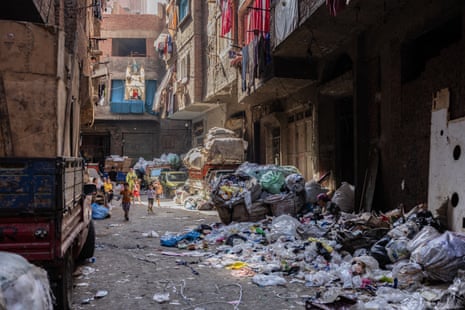
-
Many people in Cairo avoid Manshiyet Nasr due to the piles of stinking rubbish on the streets
But despite playing a vital role in keeping Cairo clean, Manshiyet Nasr has long been stigmatised. Most Cairo residents avoid the area, put off by the overwhelming stench of rubbish piled in homes, on rooftops and along the streets, full of rats and cockroaches scavenging for food.
Nedi is part of a new, young generation eager to break the stigma his community has been facing for decades. Slowly, it seems to be working.
Egypt generates up to 100m tonnes of solid waste annually. And while the country has made refuse a political priority – setting up the Waste Management Regulatory Authority to oversee it – implementation is still difficult due to limited institutional capacity.

-
Families work together as waste collectors in Manshiyet Nasr
This, Nedi explains, is where Manshiyet Nasr steps in – and opinions of the area have started to shift.

-
Nedi educates his university friends about recycling being a positive action against plastic pollution
“While I was studying, I worked in recycling part-time to help pay my tuition,” Nedi says, adding that his friends were curious and asked lots of questions. They wanted to learn more and started thinking about reducing their plastic consumption and environmental footprint. “Recycling is becoming the cool thing to do here in Egypt,” he says.
In Manshiyet Nasr, more young people are beginning to share that mindset; seeing recycling not just as a job, but as a way to drive change.



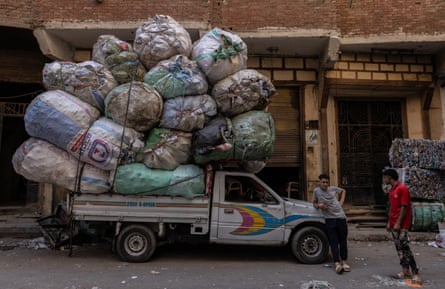
-
Rubbish collectors in Manshiyet Nasr load bags of waste on to pickup trucks
“The climate crisis is intensifying across the globe, including in Egypt, worsening water scarcity, heatwaves and food shortages,” says Will Pearson, co-founder of Ocean Bottle, a London-based startup that sells reusable bottles and funds the removal of plastic equivalent to 1,000 bottles in weight for each one sold, with Manshiyet Nasr among its partner communities.
“Global plastic production emits greenhouse gases equivalent to the world’s sixth-largest economy – it’s in every way a growing and interconnected part of the problem,” he says.
According to the World Bank, the Middle East-north Africa region has the highest per capita footprint of plastic leakage into the marine environment, with the average resident releasing more than 6kg (13lb) of plastic waste into the ocean every year.

-
Irini Edel, 29, is proud of her work as a rubbish collector
This is what Irini Edel, 29, who also lives in Manshiyet Nasr, is afraid of. “We’re polluting our planet and that’s why I see my work as important. It’s for the environment, and I’m proud of it,” she says.
She has recently joined Plastic Bank, a social fintech working in Manshiyet Nasr, and with a small team she has hired, she is processing up to 130kg of waste a day. Edel considers herself part of a growing movement of environmentally conscious Egyptians pushing for change.


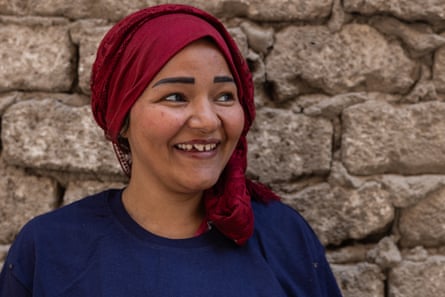
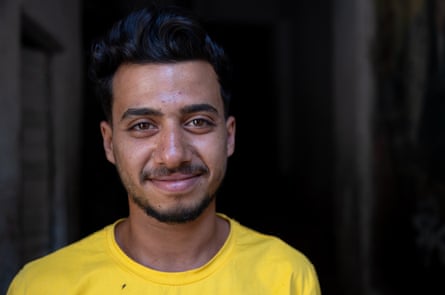
-
Top: Irini Edel is able to send her daughter, Justia, to school with money earned collecting rubbish; bottom: Emana Mohammed, 28, works as a rubbish collector and Korollus Foad, 21, is a recycler
“I have two young children, and my work is also for them, so they can have a cleaner future,” she says, sitting in her cozy and carefully decorated home.
Outside, children play football in the narrow alleys, darting between mounds of rubbish. Pickup trucks constantly arrive, with collectors lifting large bags into their garages and homes to sort through and sell on to companies that will reuse it.
Michael Nedi, Mina’s 20-year-old brother, says he does not mind living in Manshiyet Nasr.

-
Fathy Rumany, 38, with his wife, Mary, 40 and three children. One of the families working in recycling in Manshiyet Nasr
He is studying computer science at university, but outside class, he often talks to friends about recycling and the plastic crisis.
“They respect me for what I do,” he says. “Young people are more open now, more accepting.”
Just upstairs from where he sorts plastic after lectures, the family is renovating their apartment, investing in Manshiyet Nasr for the long run. The ceilings are beautifully decorated; the rooms spacious and bright. “This is our community and we are proud of it,” he says.

-
Children play outside amid the piles of rubbish

 3 months ago
85
3 months ago
85


